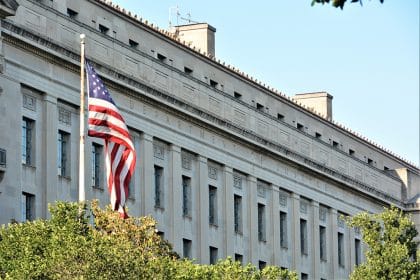The arrest of Mango Markets exploiter has drawn reactions from the crypto community, particularly regarding the terms of the charges he faces.
Mango (MNGO) markets exploiter, Avraham Eisenberg, was recently arrested in Puerto Rico on charges bordering on market manipulation and fraud. The arrest followed after the crypto investor took advantage of a loophole on the DeFi trading platform Mango Markets. The mid-October exploit saw Eisenberg making away with $110 million worth of crypto, eventually causing the platform to become insolvent.
Eisenberg, however, insists that he and his team had only “operated a highly profitable trading strategy.” He also maintains that they only carried out market actions that were legally permitted by the protocol.
While his claims will be determined by relevant authorities, his arrest on Monday has expectedly drawn reactions from the crypto community, especially regarding the terms of the charges.
Eisenberg Slammed with Commodities Fraud Charges in MNGO Case
It is particularly noteworthy that in such a case involving a coin such as Mango Markets’ native token MNGO, commodities fraud charges are being pressed. Count one of the charges read in part:
“AVRAHAM EISENBERG, the defendant, willfully and knowingly, directly and indirectly, used and employed, and attempted to use and employ, in connection with a swap, a contract of sale of a commodity in interstate and foreign commerce.”
In further clarification of the terms, however, US Federal Bureau of Investigation special agent Brandon Racz wrote:
“I understand that virtual currencies, such as USDC, are ‘commodities’ under the Commodity Exchange Act.”
Considering this line of thought, the DoJ and FBI appear to be saying that USDC is a commodity, and so MNGO/USDC futures fit the statutory definition of a swap, which must be based on the value of at least one commodity.
Recall, Eisenberg’s actions involved manipulating the price of the exchange’s MNGO coin against that of the USDC stablecoin. This was before he then took out loans against his collateral.
For what it’s worth, there wouldn’t be so much controversy around claims that USDC is a commodity. At least, not as much as there would be uproars if the same was claimed for a coin like MNGO. However, it seems DoJ consciously chose its words to prosecute the case based on the Commodity Exchange Act (CEA). At least, for the sake of convenience, and the fact that the CEA directly tackles price manipulation.
next